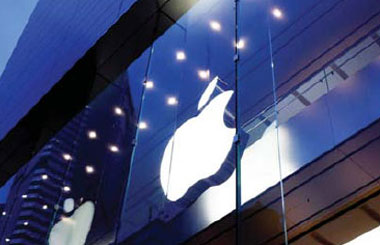Star Wars may not be a force
Updated: 2016-01-08 07:56
By Raymond Zhou(China Daily Europe)
|
|||||||||||
|
|
For historical reasons the world's foremost sci-fi franchise has one gigantic blind spot
When my American friends talk to me about Star Wars, it usually takes me a long time to explain why their favorite sci-fi franchise has not caught on in the Middle Kingdom the way it has in the rest of the world.
The biggest piece of the puzzle lies in 1977, the year the first installment made its debut. That was right after the end of the "cultural revolution" (1966-76). There were sporadic mentions of the runaway hit in the Chinese press, but I did not get to see it until the early 1980s when it was screened to a limited audience as part of an American film festival. There was a palpable feeling of disappointment - or ennui at best - among college students and teachers.
The reason was simple: The 1980s was a time of reckoning and reflection. Most Chinese who viewed foreign fare at the cinema wanted serious drama that dealt with grave social issues. We were not ready for a piece of entertainment, and we did not care much for the then-revolutionary special effects. In other words, we were the polar opposite of what Chinese filmgoers are today.
The Empire Strikes Back was aired on some city channels in 1988, but television sets had not yet reached every Chinese household, and the most popular shows back then were Hong Kong kung fu shows, which had mammoth fictional worlds of their own, such as adaptations of Louis Cha novels.
The 1990s changed the equation when video discs introduced a century of world cinema to a huge audience base. When Star Wars: Episode I - The Phantom Menace was released in China in 1999, it was exactly 22 years - approximately one generation - after a global whirlwind was whipped up by the original movie. When film attendances in China were at their peak around 1980, Star Wars was not available to make the all-important first impression, and even if it had, judging from public reaction to other Hollywood sci-fi movies that found their way to China, it would probably have been met with a lukewarm reception. And when China emerged as a market juggernaut in the first decade of this century, the new wave of moviegoers showed little interest in a franchise that should have wowed their parents - had their parents been living in another country, that is.
The mismatch between a cultural product's timing and its audience's mentality could not be more telling if you study the popularity of Hollywood franchises such as Harry Potter, The Lord of the Rings, Transformers, The Avengers, X-Men and other superhero series. They all arrived in China in the new century. Transformers could trace its roots to the television cartoon shown on Chinese television in the 1980s, but the nostalgic make up a fraction of today's growing audience, which has an average age of 21. To sell Star Wars to this demographic would be like selling them their grandfather's Oldsmobile.
That is not to say George Lucas' creation does not have loyal Chinese fans: you just won't be able to find one who got hooked on it in 1977. A Chinese Star Wars online forum was launched in 2001. It has 50,000 registered users, of which 10,000 are active, which, according to a recent Southern Weekend article, corresponds to the actual size of the franchise's Chinese fan base. Chen Tao, in charge of the forum, reveals that most Chinese fans are residents of Beijing or Shanghai, in their 30s, well educated and have English proficiency. What an entrance barrier.
A global fan group, called the Fighting 501st, has 45 members from the Chinese mainland out of a worldwide base of 7,000 members. The Chinese branch was set up in 2005.
If the original six-part Star Wars had missed the Chinese boom, the new one, The Force Awakens, could reboot the franchise in the world's second-largest film market - expected to overtake the North American market in a few short years. While the new story has unsettled some long-time fans in other countries, it is perfectly positioned to win a generation of new audiences who are not emotionally moored to the original.
The results may well depend on the first week of its China release, set for Jan 9. If history is any indicator, critical praise can get a movie only so far - specifically in the range of 500-800 million yuan ($76-121 million; 70-113 million euros) for a Hollywood sci-fi work. Interstellar grossed 755 million yuan, and The Martian 586 million. Inception, arguably the talk of the town for its genre, raked in 460 million in 2010, which could have easily been double now given the increase in new screens.
Star Trek, the other Hollywood sci-fi franchise with deep roots, has fared more poorly. Star Trek Into Darkness, the 2013 movie directed by J.J. Abrams, generated only 351 million yuan in China, hardly an uplifting figure for a Hollywood heavyweight.
Hollywood blockbusters that climbed over the 1 billion yuan benchmark in China have one thing in common: computer-generated spectacles galore. They are review-proof. The Transformers franchise was lambasted with negative reviews, but its box-office performance simply shot up with each new installment. The turnout of so-called "small-town youth", the bulk of the new movie audience base, has shown an inordinate appetite for nonstop spectacles, be they chases, explosions or intergalactic fighting. They have not shown much patience for nuances of narrative art or fine dialogue. Not yet.
All this means the pre-existing Chinese fan base for Star Wars, even if it were 100 times larger than it is, will not be able to outperform a single episode of Tiny Times, the four-part glamour porn that attracted somewhere between 10 and 20 million teenage girls. Ideally, it should have built-in quality and interpretive material to help it hit the 500 million yuan mark and then enough spectacles to tide it over 1 billion yuan.
Ironically, too much back story, the kind that invariably wins applause in the West, could be a turnoff for Chinese who are yet to warm up to it. Big-budget releases too dense with cross-references and allusions, a favorite with cinephiles, have met with a blank stare or even open ridicule from the public. However, the taste of Chinese film audiences could be amorphous. In a frontier atmosphere, anything could happen.
Yang Yang contributed to this story.
raymondzhou@chinadaily.com.cn
Today's Top News
Going mobile
Wealth of options for China's super-rich
Man with knife shot dead outside Paris police station
Trading halted after shares fall 7% in opening minutes
China voices its 'resolute opposition' to DPRK test
Design exhibition to attract Chinese art works
Germans shaken by mass attacks on women
Concerns grow over Saudi-Iranian rising tensions
Hot Topics
Lunar probe , China growth forecasts, Emission rules get tougher, China seen through 'colored lens', International board,
Editor's Picks

|

|

|

|

|

|







